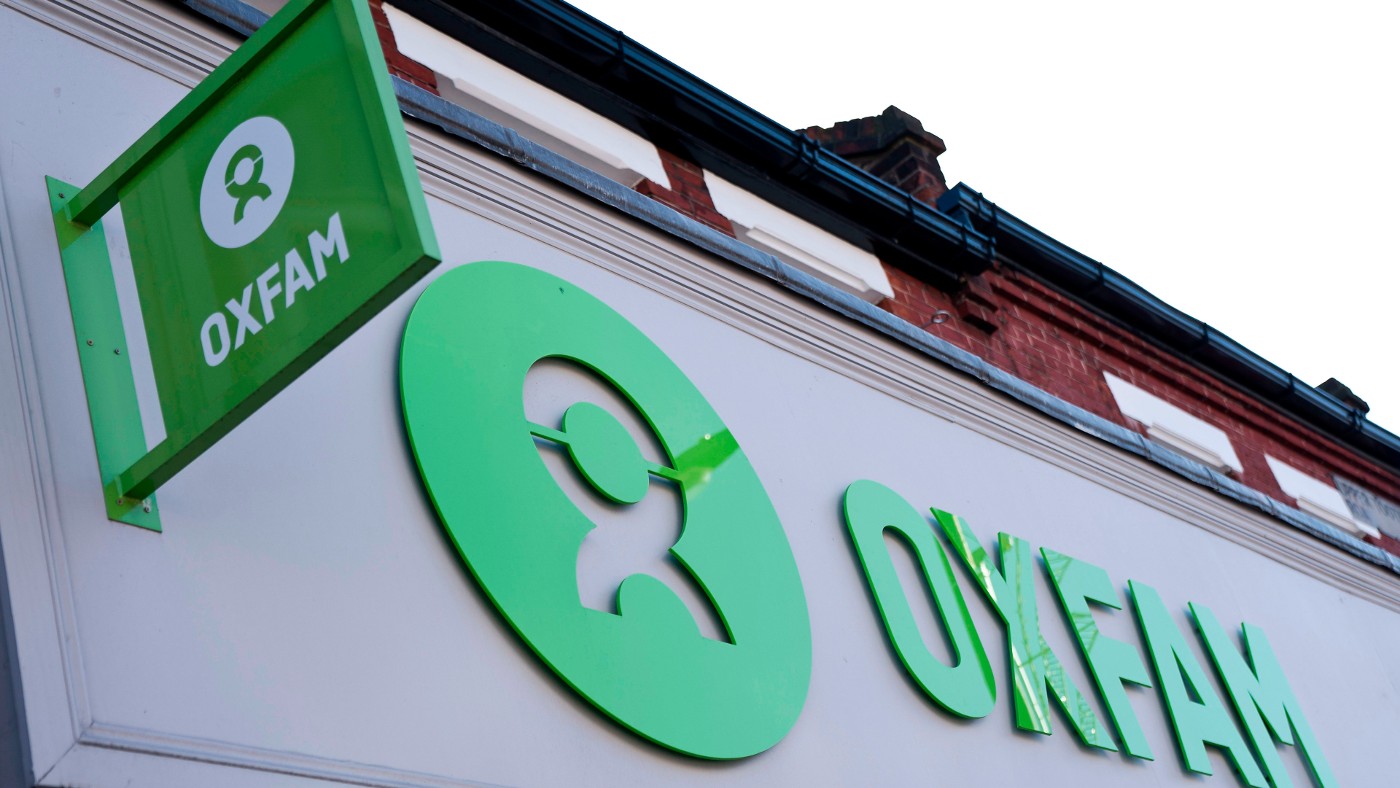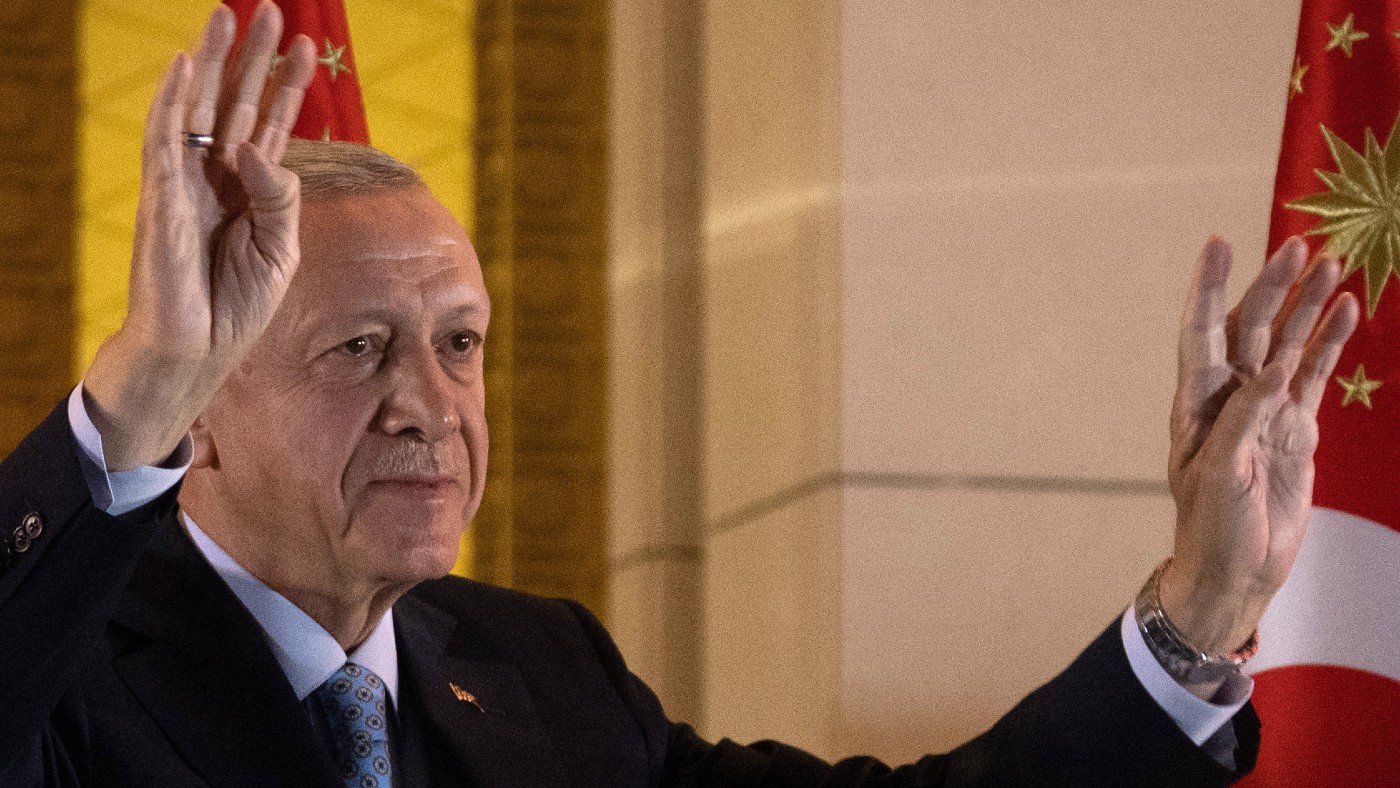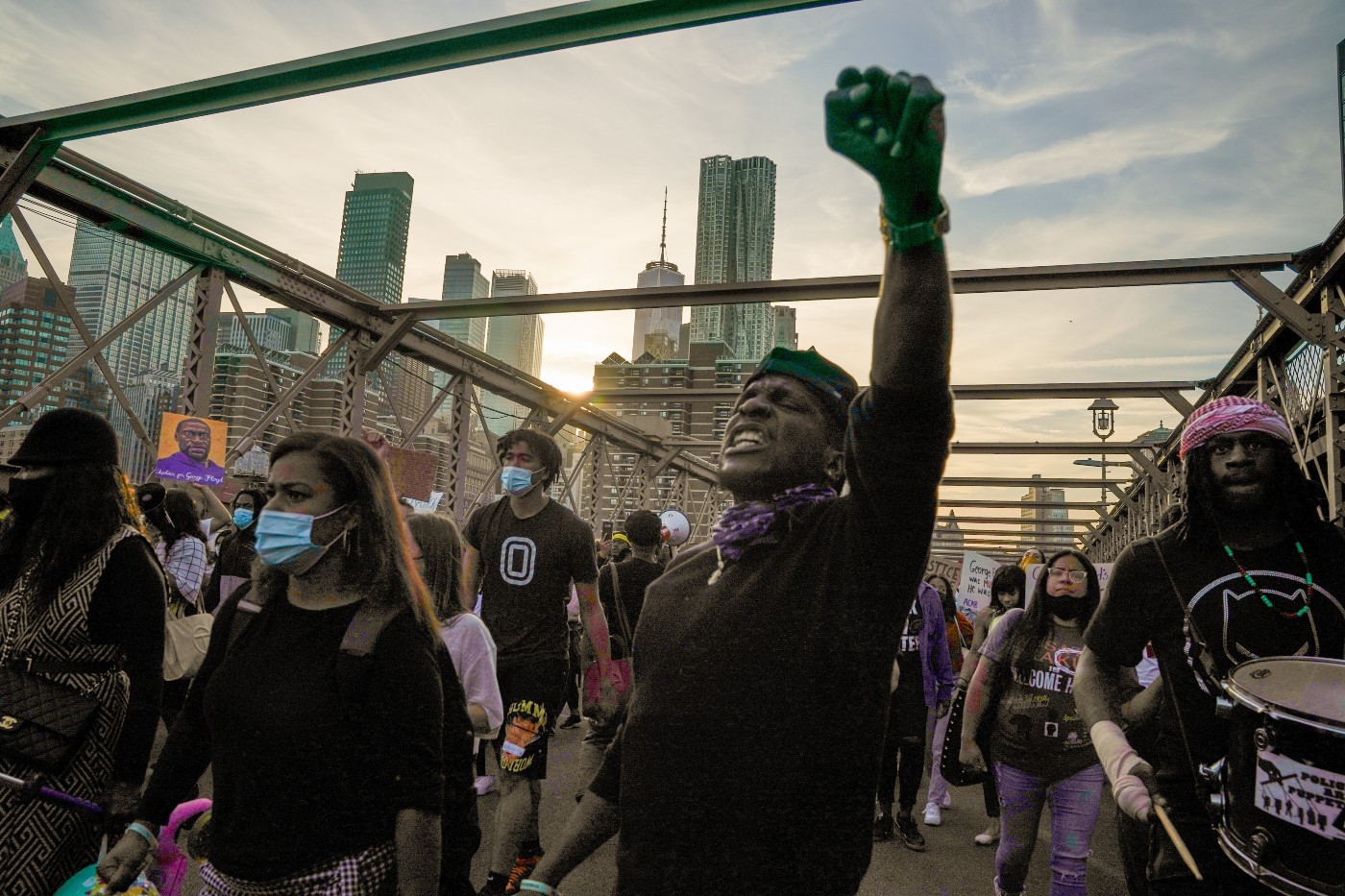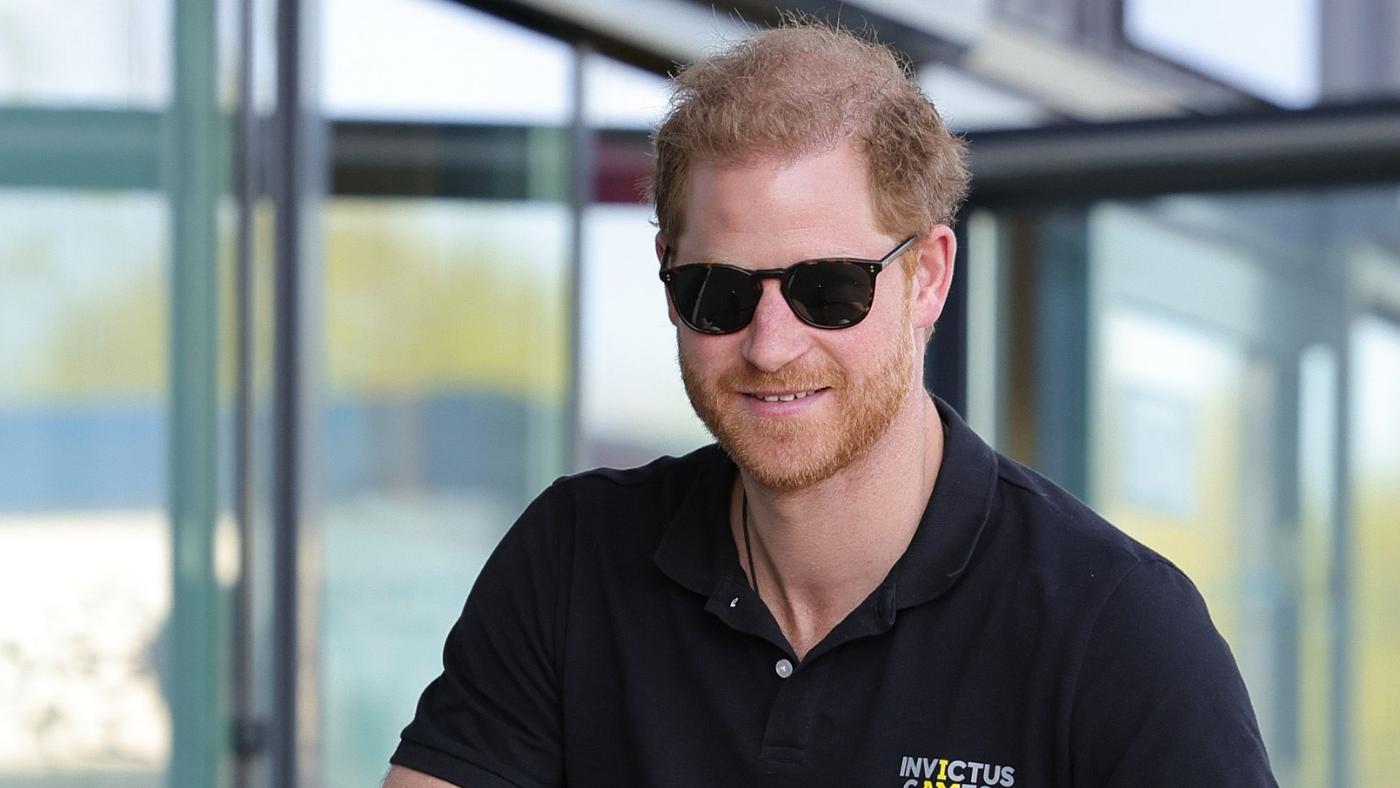What Harry & Meghan reveals about the Duchess of Sussex’s reputation within the royal family
New Netflix documentary shines a light on the British monarchy’s relationship with the patriarchy and whiteness

A free daily email with the biggest news stories of the day – and the best features from TheWeek.com
You are now subscribed
Your newsletter sign-up was successful
Lancaster University media lecturer Laura Clancy on what the first episodes of Harry & Meghan reveal about Meghan Markle’s reputation within The Firm
As an expert in the contemporary British monarchy, I watched the first three episodes of The Duke and Duchess of Sussex’s new Netflix docuseries, Harry & Meghan, closely.
What came across most was how Markle’s gender, race and class intersected in her treatment both by the media and by “the Firm” (an unofficial nickname for the British monarchy and its staff that describes the institution as a business) itself.
The Week
Escape your echo chamber. Get the facts behind the news, plus analysis from multiple perspectives.

Sign up for The Week's Free Newsletters
From our morning news briefing to a weekly Good News Newsletter, get the best of The Week delivered directly to your inbox.
From our morning news briefing to a weekly Good News Newsletter, get the best of The Week delivered directly to your inbox.
As with their 2021 Oprah interview, this documentary is a forum for the couple to account for their treatment by the Firm. These kinds of royal confessionals risk damaging the monarchy, as they cast a light “behind the scenes” of an institution which relies on magic and majesty to maintain its image.

Patriarchy and women’s bodies
Princess Diana’s traumas in the royal family have been well covered over the decades, including by the Panorama documentary she used to tell her own story in 1995. Like Markle, Diana Spencer spoke about her mental health and a lack of support from the Firm. Harry & Meghan also makes comparisons between Spencer and Markle, claiming that both women were hounded by the paparazzi throughout their royal lives.
Markle talks about “men sitting in cars all the time” outside her house, waiting for her to leave. In any other situation, she says, this would amount to stalking. As Markle mentions, gender matters here. Celebrities like Britney Spears have spoken out about the unique pressures women face from tabloid intrusion.
The economy surrounding these women encompasses multiple industries, from cosmetic surgery to fashion brands, who benefit from paparazzi exploitation. Britney Spears’ body became an economy in itself as paparazzi pictures of her were worth so much money.
A free daily email with the biggest news stories of the day – and the best features from TheWeek.com
For royal women, this takes on a new imperative. The monarchy is reliant on women’s bodies for its reproduction – literally, the reproduction of heirs. Royal women’s bodies are fetishised as reproductive of the nation, as they birth the next “symbol” of Britishness. This also accounts for the hidden meaning behind those questions from within the royal family about the colour of Archie’s skin – they are asking how “British” (or rather, how white) her baby might look.
It is not just about clothing and branding, but about how royal women’s bodies take on meaning that connects femininity and the nation. This is a patriarchal institution that uses women’s bodies for its own ends.
Respectability politics
As the documentary shows, for Markle this is not just about gender. Race and class come to play a part in the intersectional pressures she was placed under. Headlines like the Daily Mail’s “(Almost) Straight Outta Compton” are discussed as evidence of the racist coverage of the early days of the couple’s relationship.
Markle also mentions the Firm’s discomfort with her acting career. She explains that there are assumptions made about Hollywood and the people who work in it. Acting is seen as too déclassé a profession to marry into the royal family, despite the fact that the Firm operates like a celebrity industry in and of itself.
Around the time of their wedding, tabloids were also representing Markle’s father’s (Thomas Markle) side of the family in ways reminiscent of “white trash” discourses. “White trash” is an American slur (equivalent to the UK’s “chav”) for an abject working class figure.
The Daily Mail reported on Markle’s aunt and cousin spending the royal wedding wearing cardboard browns in a Burger King, a fast food chain associated with working-class stereotypes. Their meal was positioned in contrast to the upper class and aspirational one taking place at the same time in Windsor.
Black studies scholars like Brittney Cooper have referred to condemnation of the actions of people of colour as “respectability politics”. Inclusion into typically white spaces is undertaken through observing white, middle class norms, including being “mainstream, articulate, and clean cut, black but not too black, friendly, upbeat, and accommodating”.
Of course, the monarchy is perhaps the pinnacle of “respectable”: an institution enshrined as the peak of British society. The racism which has plagued Markle, and the fact she was never allowed to achieve racial uplift, demonstrates how whiteness, gender and upper classness are used to police the boundaries of respectability.
Femininity and the nation
Women in the royal family are always subject to more pervasive attention than the men. Princess Diana and Kate Middleton have received intense scrutiny, from what they say and wear to speculation about what’s going on in their wombs.
As Harry points out in the documentary, though, Markle’s situation was unique. Her story tells us something fundamental about the British monarchy’s relationship to patriarchy and whiteness, and how the two are inseparable.
And as media scholar Raka Shome writes in her book, Diana and Beyond, white femininity “is always a doing and not a being. It is always pushed and pulled, routed and rerouted to script national desires.”
The hounding of Markle is one site of this push and pull. The scripts of white femininity, and therefore of nation, were fought and continue to be fought, over representations of her.
Laura Clancy, lecturer in media, Lancaster University.
This article is republished from The Conversation under a Creative Commons license. Read the original article.
-
 Political cartoons for February 16
Political cartoons for February 16Cartoons Monday’s political cartoons include President's Day, a valentine from the Epstein files, and more
-
 Regent Hong Kong: a tranquil haven with a prime waterfront spot
Regent Hong Kong: a tranquil haven with a prime waterfront spotThe Week Recommends The trendy hotel recently underwent an extensive two-year revamp
-
 The problem with diagnosing profound autism
The problem with diagnosing profound autismThe Explainer Experts are reconsidering the idea of autism as a spectrum, which could impact diagnoses and policy making for the condition
-
 Charity shop painting sells for £25,000
Charity shop painting sells for £25,000Tall Tales And other stories from the stranger side of life
-
 Jenin and the endless cycle of Palestinian displacement
Jenin and the endless cycle of Palestinian displacementfeature Refugee camp at the heart of a struggle around demographics, displacement and mobility
-
 How Erdogan held onto power in Turkey and what this means for the country’s future
How Erdogan held onto power in Turkey and what this means for the country’s futurefeature Staunch support from religious voters and control of the media ensured another five-year term for Turkish president
-
 George Floyd legacy: what has changed in the US three years on
George Floyd legacy: what has changed in the US three years onfeature Police officers are more accountable but has ‘white empathy’ hit a wall?
-
 Juice: the European space mission to find life on Jupiter’s moons
Juice: the European space mission to find life on Jupiter’s moonsfeature Three of Jupiter’s moons are home to large, underground oceans that could support life
-
 Sex toy ad joking about Prince Harry is banned
Sex toy ad joking about Prince Harry is bannedfeature And other stories from the stranger side of life
-
 Lula and the world: what to expect from new Brazilian foreign policy
Lula and the world: what to expect from new Brazilian foreign policyfeature As Brazil’s new president kicks off his third term, foreign policy will be a tool for building his own domestic political legitimacy
-
 Swimming pools vs. wild swimming: which is worse for germs?
Swimming pools vs. wild swimming: which is worse for germs?feature A microbiologist explores where’s cleanest for a dip: swimming pools, or rivers, lakes, canals and the sea?